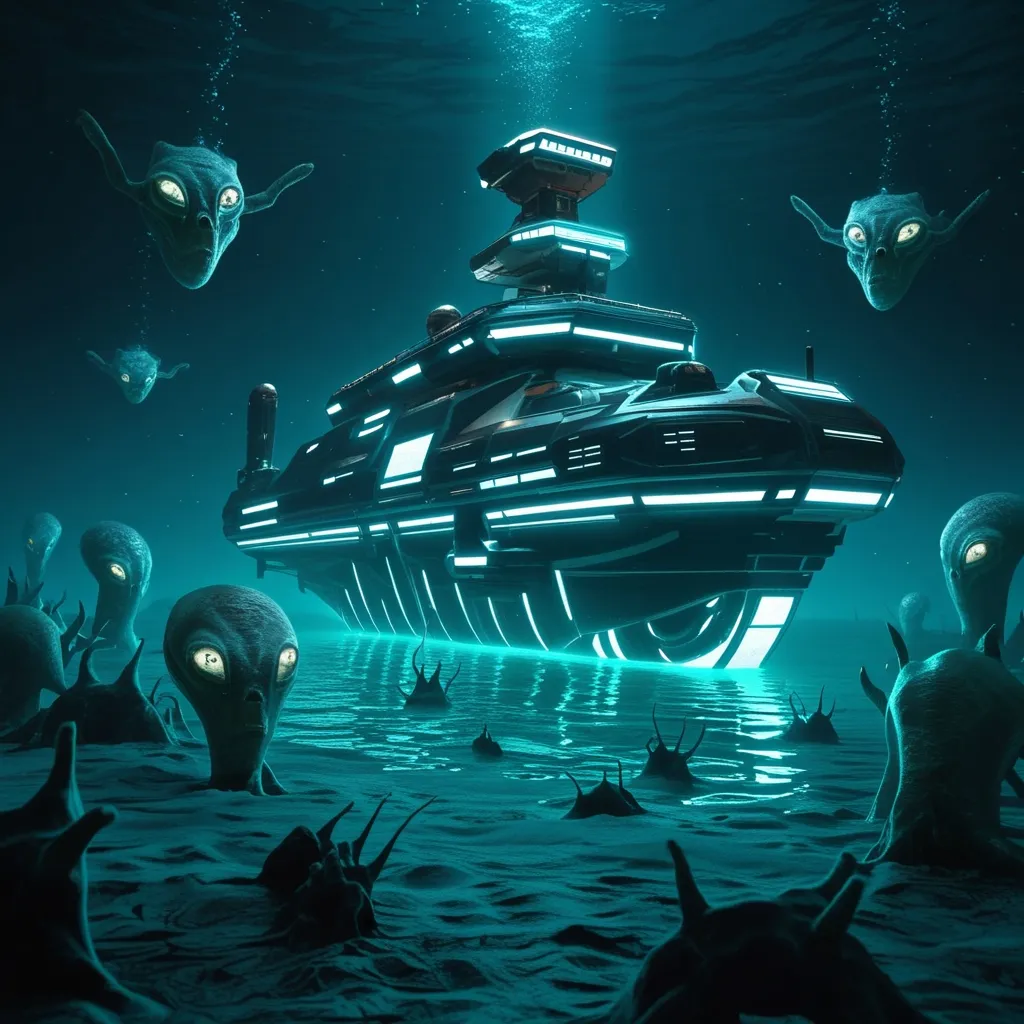The Deep Ocean: Earth’s Final Frontier
The vast, mysterious expanse of our planet’s oceans has captivated human imagination for centuries. Covering over 70% of Earth’s surface, these watery realms hold secrets that could revolutionize our understanding of life, climate, and even our own origins. Yet, despite their enormity and importance, the oceans remain largely unexplored, particularly their deepest reaches.
It’s mind-boggling to think that we’ve mapped Mars and the Moon in greater detail than our own ocean floor. The deep sea is truly Earth’s final frontier, a place where the unknown still reigns supreme. But why is this the case? Why haven’t we plumbed the depths of our oceans with the same vigor as we’ve explored space?
The answer lies in the extreme conditions found in the deep ocean. We’re talking about an environment that’s as hostile as it gets - crushing pressures, near-freezing temperatures, and a complete absence of sunlight. To put it in perspective, at depths of around 4 miles, the pressure is equivalent to having 50 jumbo jets stacked on top of you. It’s no wonder that even our most advanced technologies struggle to withstand these conditions.
But that doesn’t mean we haven’t tried. The 20th century saw a boom in ocean exploration, with pioneers like Jacques Cousteau leading the charge. Cousteau’s invention of the “Aqua-Lung” opened up new possibilities for underwater exploration, and vessels like the Calypso and the Alvin submersible pushed the boundaries of what was possible.
Today, we’re witnessing a new era of deep-sea exploration, powered by cutting-edge technology. Autonomous underwater vehicles (AUVs) like the Deepglider are changing the game. These incredible machines can dive to depths of 6,000 meters and stay at sea for up to 18 months. That’s a huge leap from earlier models that could only reach 1,000 meters.
Then there’s the Okeanos Explorer, a high-tech vessel operated by the American government. Equipped with remote operating vehicles (ROVs) like the “Deep Discover,” this ship is on a mission to uncover the secrets of the deep. From discovering new species to investigating shipwrecks, the Okeanos Explorer is at the forefront of ocean exploration.
But why should we care about exploring the deep ocean? Well, the potential benefits are enormous. For starters, the deep sea is home to vast resources, including rare metals and minerals that could be crucial for future technological advancements. Imagine if we could sustainably harvest these resources - it could revolutionize industries and economies worldwide.
Then there’s the potential for scientific discovery. The deep ocean is teeming with life forms we’ve never seen before. Every expedition seems to uncover new species, some of which could hold the key to medical breakthroughs or provide insights into the origins of life on Earth. Hydrothermal vents, for instance, are like underwater hot springs that could offer clues about how life first emerged on our planet.
Climate change is another critical reason to explore the deep ocean. Our oceans play a crucial role in regulating the Earth’s climate, absorbing a significant amount of heat from the atmosphere. But we still don’t fully understand how this works, especially in the deeper parts of the ocean. By exploring these depths, we could gain valuable insights that could help us mitigate the effects of climate change.
The economic implications of deep ocean exploration are also significant. As land-based resources become scarcer, industries are turning their attention to the deep sea. There’s a growing interest in deep-sea mining, which could provide access to valuable minerals. However, this also raises important questions about environmental protection. How can we balance the potential economic benefits with the need to preserve these unique and fragile ecosystems?
It’s not just about sending machines into the deep, either. There’s a growing interest in increasing human presence in the deep ocean. Advanced diving suits and underwater habitats are being developed to allow humans to explore deeper than ever before. While unmanned vehicles will likely continue to play a major role due to the extreme conditions, the possibility of humans spending more time at depth could lead to new discoveries and a deeper understanding of the ocean’s mysteries.
Imagine being able to spend days or even weeks living and working in the deep sea. It sounds like science fiction, but it’s closer to reality than you might think. These underwater habitats could serve as bases for scientific research, allowing for longer and more in-depth studies of deep-sea ecosystems.
The future of ocean exploration is looking brighter than ever, with exciting innovations on the horizon. One area of particular promise is nanotechnology. Scientists are working on developing swarms of tiny autonomous sensors that could be deployed to monitor large ocean areas. These sensors could transmit data back to researchers in real-time, providing a more comprehensive understanding of ocean dynamics than ever before.
Another exciting development is the use of artificial intelligence and machine learning in ocean exploration. These technologies could help process the vast amounts of data collected during deep-sea expeditions, identifying patterns and making discoveries that might be missed by human researchers.
As we continue to push the boundaries of what’s possible in deep-sea exploration, we’re not just uncovering the secrets of an alien world beneath the waves. We’re also gaining insights that could transform our understanding of our planet and our place within it. The deep ocean holds clues to our past, keys to our future, and wonders we’ve yet to imagine.
Every dive into the deep brings us face to face with the extraordinary diversity of life on our planet. From bioluminescent creatures that light up the darkness to organisms that thrive in conditions we once thought impossible for life, the deep ocean is a treasure trove of biological marvels. These discoveries aren’t just fascinating - they’re reshaping our understanding of what life is capable of and where it might exist beyond Earth.
The journey into the deep ocean is far from over. In fact, it’s just beginning. As we develop more advanced technologies and techniques for exploring these extreme environments, we’re opening up new frontiers of discovery. Who knows what wonders we’ll uncover in the coming years?
Perhaps we’ll find new sources of sustainable energy, inspired by deep-sea organisms that thrive without sunlight. Maybe we’ll discover compounds that could lead to cures for diseases or materials with properties beyond our current imagination. Or perhaps we’ll gain insights that could help us adapt to a changing climate and protect our planet for future generations.
One thing is certain: the deep ocean remains Earth’s final frontier, a realm as mysterious and challenging as it is promising. As we continue to explore its depths, we’re not just satisfying our curiosity - we’re potentially unlocking solutions to some of humanity’s greatest challenges. The ocean has always been a source of wonder and inspiration for humanity. Now, as we dive deeper than ever before, it’s becoming a source of hope for our future.
So the next time you look out over the vast expanse of the ocean, remember that beneath those waves lies a world as alien and unexplored as the farthest reaches of space. A world that could hold the key to our future, waiting to be discovered. The deep ocean truly is Earth’s final frontier - and its exploration is one of the greatest adventures of our time.






